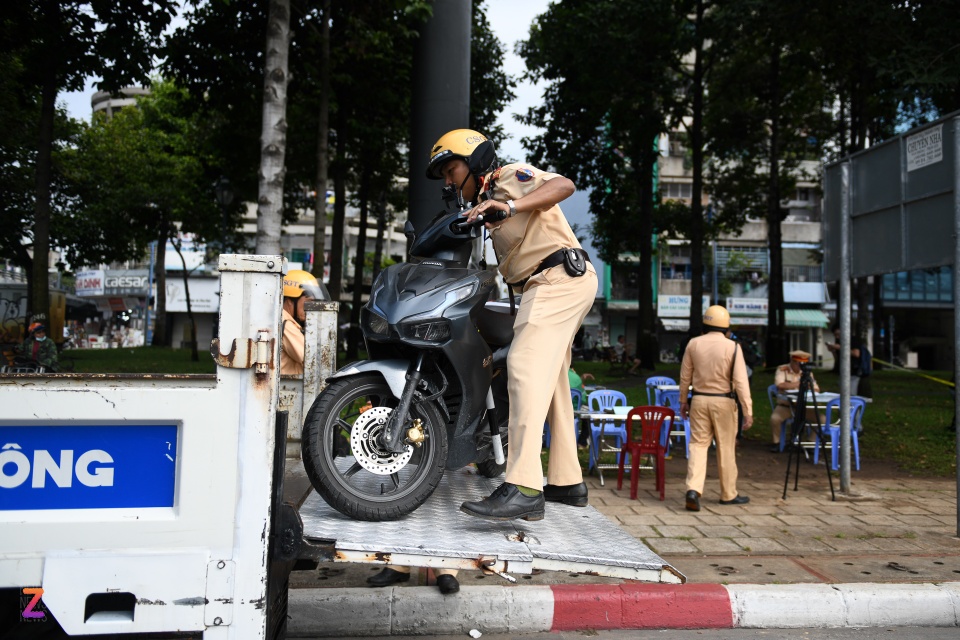## New Traffic Laws in Vietnam: Understanding the Risks of Evading Penalties

|
Since the beginning of the year, traffic violation fines in Vietnam have increased significantly, with some penalties now three to thirty times higher than before. This has sparked concerns among drivers, who worry about the potential consequences of such steep fines.
So, what happens if someone chooses to evade these penalties? Let’s take a look at how other countries handle such situations and the potential risks involved.
## New Zealand: Asset Seizure
According to *Justice.Govt.nz*, the official website of the New Zealand Government, drivers who intentionally avoid paying traffic fines will face a series of consequences. These include a suspended license and vehicle impoundment for 28 days. If the driver continues to delay payment, the court can deduct the fine directly from their bank account.
Previously, offenders could also be restricted from leaving the country and denied the use of credit cards until they settled their fines. In more severe cases, failure to pay can even result in a prison sentence.
The fine doesn’t remain static; it increases over time due to late payment fees and interest. These additional charges can eventually lead to the seizure of the offender’s assets to cover the growing debt.
## United States: Varying Penalties by State
In the US, the specific consequences and fines vary from state to state. For instance, in Green Bay, drivers who fail to pay their fines promptly will have their licenses suspended, and their debt will be sent to a collection agency, where it will accrue interest.
Each traffic ticket has a specified payment deadline, and if the fine remains unpaid by that date, the local police will refer the case to the state court. To delay payment, a minimum of $50,000 must be paid to the court, and even then, the driver will receive a Failure to Appear (FTA) notice, requiring them to resolve the issue in court.
## France: Exponential Fine Increase
According to *CEC France*, traffic violators in France have 45 days to pay their fines. If they fail to do so, the penalty increases exponentially. For example, the fine for speeding can range from €68 to €1,500, but if left unpaid for 45 to 100 days, it jumps to €136 to €3,000.
Common offenses in France include illegal parking (€17), improper use of headlights (€135), and failure to wear a seatbelt (€46). Paying the fine within 15 days of receiving the ticket can result in a reduced penalty for some offenses.
## Dubai: Travel Ban and Vehicle Seizure
In Dubai, traffic violators receive their tickets either directly from the police or through “cold penalty” cameras. Offenders have 100 days to pay their fines, after which they accrue “black points” on their record, affecting their civil status.
If payment is delayed, the fine increases daily, and the offender is banned from leaving the UAE until the debt is settled. All vehicles related to the offense are impounded by the local authorities.
In cases of high fines or prolonged delays, the offender may be summoned to court and could face imprisonment.
## Suggested Read: Books to Enjoy on the Go
Our “Xe” column recommends a selection of captivating books to keep you entertained during your travels. Whether you’re on a long journey or just taking a break, these reads are the perfect companions for any road trip.
















































